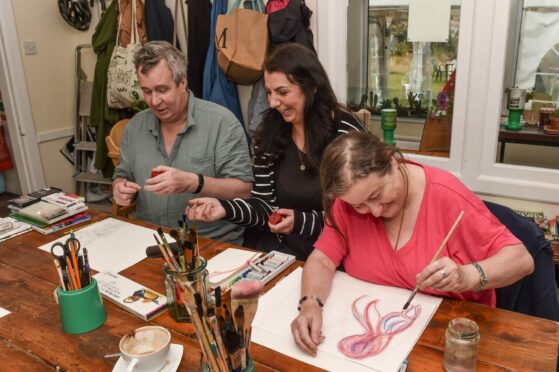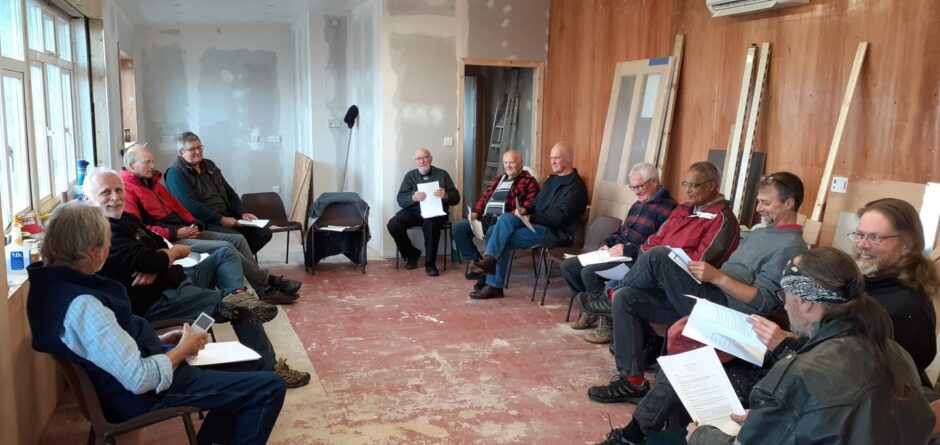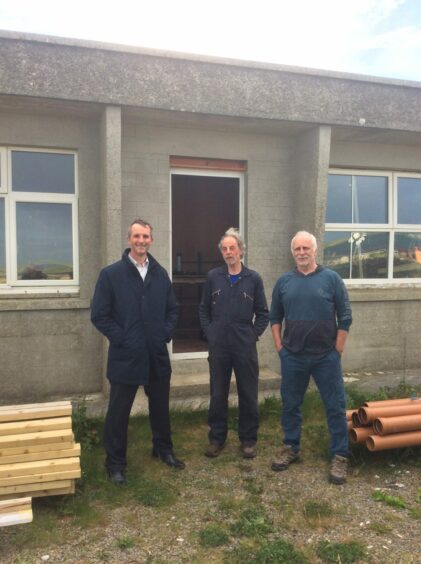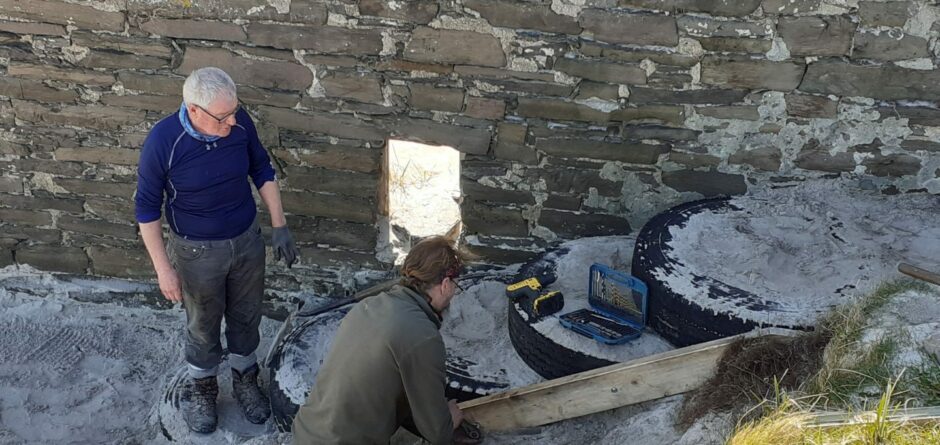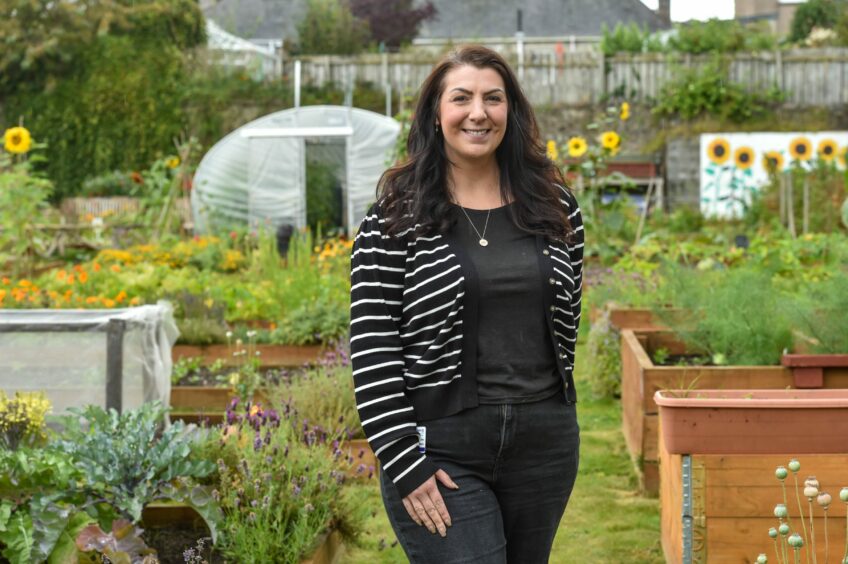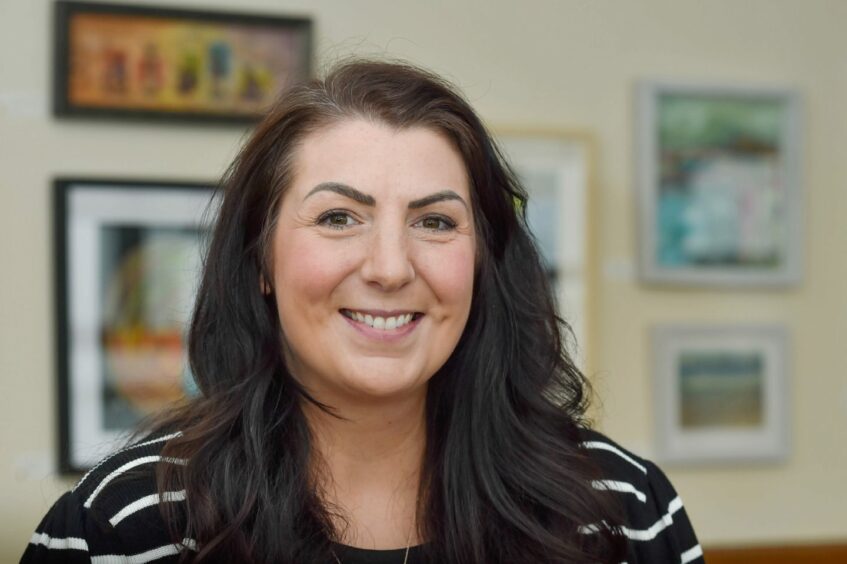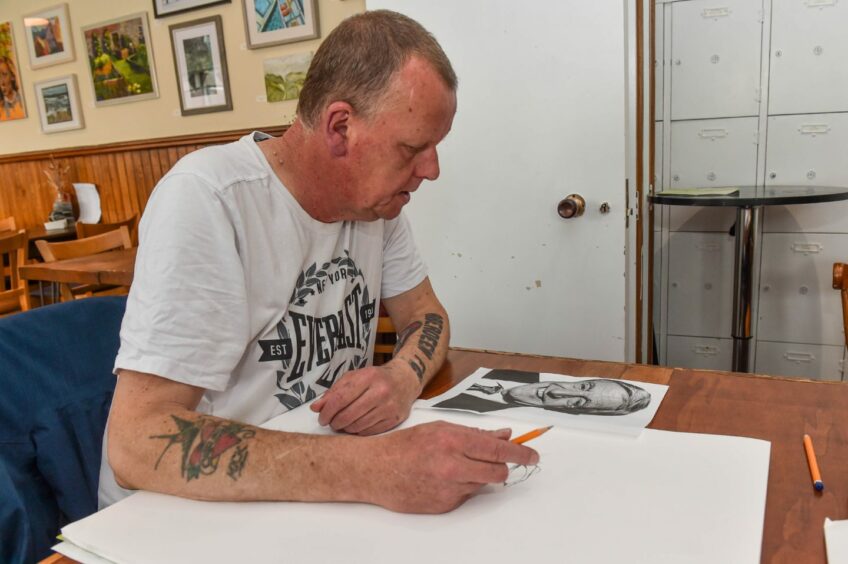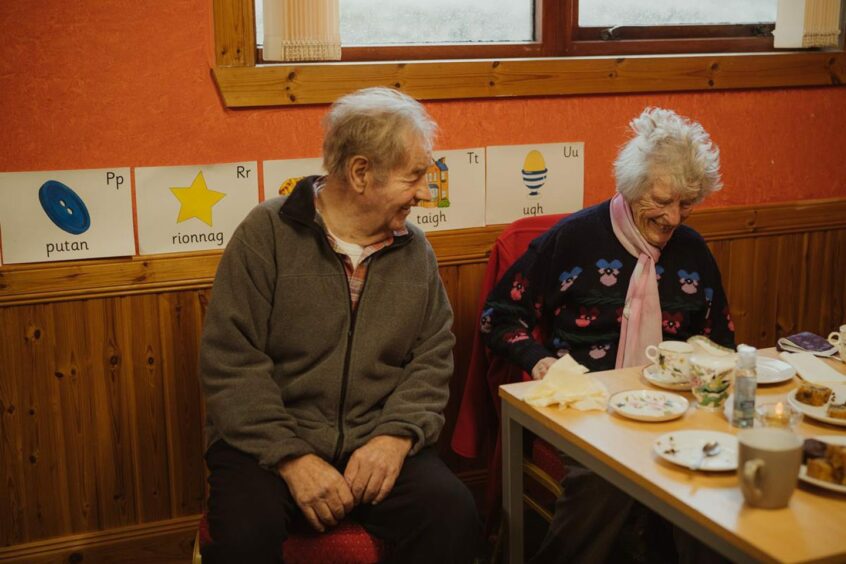Most of us at some point will have experienced feelings of loneliness or isolation.
But for some, factors such as location, health problems and even the cost-of-living crisis, mean it is a reality of their everyday life.
Earlier this year, data from the Office for National Statistics revealed 3.83 million people were chronically lonely – an increase of half a million since the first year of the pandemic.
In Scotland, measures have been put in place to try to combat isolation; among them is the Scottish Government’s £3.2 million social isolation and loneliness fund.
It recently awarded cash to more than 50 groups across Scotland. The funding will be delivered over a three-year period.
Your Life spoke to some of the organisations and groups working to help people experiencing loneliness and social isolation – from one of the furthest north Men’s Sheds in Scotland, to an art project in the north-east, and a charity based in Uist.
‘You can have a village of 100 people and they don’t know each other’
In recent years the Men’s Shed movement has gathered momentum, creating spaces for men to meet and connect with others. The Scottish Men’s Shed Association (SMSA) provides support to those who want to create sheds in their communities.
The SMSA has been awarded £70,264 from the social isolation and loneliness fund, and wants to employ a Highland development officer to get involved with the existing sheds in the region as well as those in development. But also to go to new areas that don’t have sheds and to do research.
SMSA’s chief executive officer Jason Schroeder told us: “Often you can have a village of 100 people, and the men don’t even know each other.”
In Scotland, Jason says there are 136 open sheds with 66 in development.
He said: “That’s all 32 local authorities and that’s engaging over 10,000 men, all voluntarily which is amazing. To me this has never been seen before Men’s Sheds came along – no engagement with men on this level ever.”
During our chat, Jason told me about one of the sheds currently working to open their base – the Sanday Men’s Shed.
Getting stuck in to get shed open
The group is one of the furthest north is Scotland, on Sanday in the Orkney Isles, and was formed in 2019. After gaining a lease to an old Co-Op shop in Kettletoft they have been refurbishing it.
Although the pandemic put the work on hold, once the guidelines changed and restrictions eased off, the group continued with the renovation work. Sanday Men’s Shed communications officer Francis Edwards said it has been a “major, major task”.
He said: “We’ve done that all as volunteers, mainly on a Saturday afternoon. But we’re now aiming to open later this year, and the shed’s nearly complete now.”
While work has been ongoing on their own shed, they have still carried out projects within the community. One of these was creating a set of steps from old tractor tyres and other materials to help an elderly resident who was unable to get access to the beach.
Francis highlighted the importance of such groups in rural and isolated communities such as Sanday; he spoke of how there are four shed projects in Orkney, describing it as “significant”, with the biggest in Stromness with 156 members.
‘The fellowship is key’
He said: “There’s a real need for that, and for men to get together, and I think the isolation thing, and the mental health stuff, isn’t spoken about enough.
“It’s about raising the awareness of that in our local communities; on the isles, people are quite isolated.
“The fellowship aspect of it is key. Absolutely key. We’ve got a wide range of ages here on Sanday that use the shed. For instance I’ve come from a background of 30 years in nursing.”
Francis quips: “I have got no DIY skills at all – and I’m very good at sweeping floors! But I’m learning all the time.”
The Sanday group started off with around 25 members, though that dropped off during the pandemic Francis said: “Now there’s a probably a core group of about 10, who are doing the restoration work. But what we’re hoping is once the shed is open on a regular basis, and there’s that social space, that those numbers will increase again.”
Connecting through art
For many, art can be therapeutic, and the Grampian Hospitals Art Trust (GHAT) Artroom project is using it to help those experiencing social isolation and loneliness due to their circumstances. This could be due to a stroke, mental health issues, life-limiting conditions or lack of mobility and social connections.
Artroom has been awarded more than £70,000 over the three-year period from the social isolation and loneliness fund, which means it can continue in three venues, among which is the Bonnymuir Green Café in Aberdeen.
We went along to one of the sessions at Bonnymuir Green and met Rebecca Patterson, the senior creative practitioner for the project, along with some of those attending.
Rebecca told us the project had been running since lockdown was lifted and described it as a chance for the participants “to be creative and meet”.
A sense of camaraderie
During the session we attended it was clear the group really enjoyed being together while working on their art projects with a sense of camaraderie shining through.
One of those in the group, Mick Porter, smiled as he proudly pointed and held up his pad to show us a drawing of Dons manager Barry Robson. He told us he was working on a drawing of Michael Parkinson, as the eye he was carefully sketching stared up from the paper at us.
Seated just down the table from him was Morag Webster who was creating a picture of a succulent plant, while nearby Iain Campbell had a futuristic landscape on his pad.
‘A shared understanding’
Rebecca said: “A lot of these people live on their own. They stay either independently or in some sort of sheltered, supported accommodation, and quite often don’t have an awful lot of other opportunities for getting out and meeting other people.
“It’s just giving them the opportunity to do what they want to do – and to do it in a supportive environment where a lot of the participants are from quite similar backgrounds and have been through sort of similar experiences.
“There’s a shared understanding, and a camaraderie between everybody because they’ve all been through sort of similar things. They’re all there to be creative and to be social, they’re very different people, different personalities, different backgrounds, but the group works really well.”
‘Crucial to keep it going’
Speaking of the impact the funding will have, Rebecca said: “It’ll allow us to continue with this group.
“We rent the space from Bonnymuir every week so some money goes towards that. Money goes towards the two artists that run the project.
“It’s also for materials as well. So we get a budget, and we can spend money on resources. That could be a book, it could be printer ink if we’re printing off things for people, it could be for certain materials.
“If somebody wants to try something specific, we can make that happen. And that comes from the funding. So it’s really crucial to keep it going, but also to make it really rich and valuable in what we’re able to do as well.”
Social isolation a big issue in Uist
Tagsa Uibhist is a charity which works to promote health and wellbeing in the Uists in the Outer Hebrides.
Among the services it provides is care at home, adult support, community transport and community gardens.
It has been awarded around £70,000 for its Ri Cheile Uibhist (In Good Company Uist) project, the funding will help with salaries for two support workers involved in the project.
Chief executive Chris McLullich told us: “A massive part of our work is all about social inclusion because Uist has one of the highest rates of single occupancy in the UK.
“That’s older people living on their own, and because of the transport issues here and the long distances, a lot of people are alone a lot of the time. So social isolation is really a big social issue in Uist.”
The charity was keen to help older people to mix with younger people, as well as something which helped people stay active and healthy.
Chris said the main activities for the Ri Cheile project, which will comprise of dementia-friendly community training, paths for all health walks and home ceilidhs, will start next year.
The charity’s Post Diagnostic Support Link Worker for dementia, Rosie Moar, will be leading on the walks, as well as the dementia-friendly training – which will be delivered in partnership with Alzheimer Scotland and other local organisations.
Getting people involved
Speaking of the dementia-friendly training, Chris explained the aim was to work with businesses and shops and schools, so people understand what dementia is and how to be supportive and patient to those with it.
Describing the benefit of the ceilidhs, he said: “The other component was our ceilidhs – we do them already, but we wanted to do them across the whole of the Uists – so down to Eriskay and up to Berneray – and to make Gaelic quite a big aspect of it.
“A lot of people with dementia who are here are Gaelic speakers and music and the Gaelic language can trigger a whole lot of memories and feelings that they may not get if they’re not speaking Gaelic.”
He added that the paths for all walks would involve regular walks for older people with younger people, which would be guided.
And he went on to say: “It’s all about community engagement and getting people involved.”
